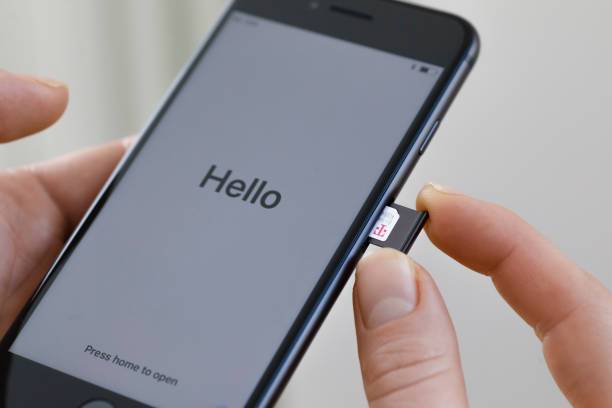Many subscribers in Nigeria are disappointed with government directives to disconnect their lines. Over 72 million subscribers in Nigeria were recently barred from using their lines, this comes as the government’s directive became effective on April 4.
The affected subscribers are worried that they could not make outgoing calls from their mobile phones, because it has been deactivated.
“I feel so bad, I cannot make calls but I can receive calls, it is a mess and government should try and ratify the situation,” said Godswill Otokpa, a Subscriber.
“It is a great disappointment but I think I should be blamed because I have been warned several times, I made calls that I will be disconnected and I thought It was a joke but surprisely, when I tried making call again, it didn’t go. I have come to get it reactivated and was told my name has to be reactivated and I don’t understand,” said another subscriber, Aluka Kingsley.
Following the directives, Telecommunications companies in Nigeria have commenced barring outgoing calls of subscribers who have yet to link their national identification number (NIN) with their subscriber identification modules (SIM) cards.
Nigeria has a total of 198,127,431 active subscriber lines across network as at February this year, but the Minister of Communications and Digital Economy, Dr. Isa Ibrahim Pantami, who gave the order to deactivate all unlinked SIM cards, said before the order was given few day ago, 125 million subscribers have had their NINs submitted for immediate linkage, verification and authentication.
Given the total number of 198 million active lines across networks, and the 125 million subscribers that have submitted their National Identification numbers (NINs), it shows that over 73 million active lines have not been submitted for linkage, and they must have been affected by the federal government's order.
Public Affairs Analyst, Jide Ojo says he advocates that technology should be infused in the fight against insecurity and that the national registration is one thing that could help in the fight against insecurity.
“So that is the angle and to help fight against insecurity. It also helps in economy planning, because when you look at how many Nigerians are on each of the network, just like BVN helps in the fight against economic crimes, the NIN is also going to help in the fight against insecurity and economic planning because then you would know who is using what and the extent of the use,” Ojo added.
In a last-minute push for the linkage, the government, on April, 8, directed Nigerians to ensure they complete the verification and linkage of their NINs to their SIMs within days.




